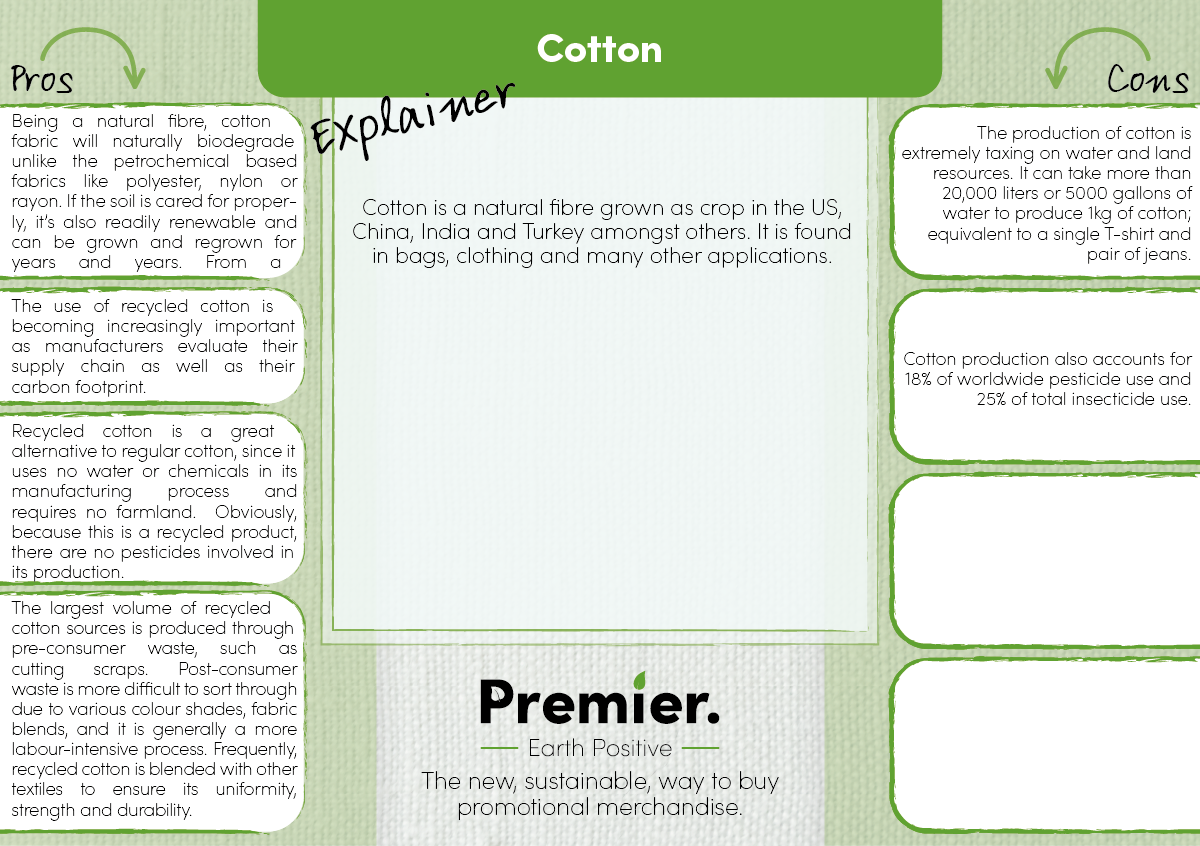
Pros
Being a natural fibre, cotton
fabric will naturally biodegrade unlike the petrochemical based fabrics like polyester, nylon or rayon. If the soil is cared for proper- ly, it’s also readily renewable and can be grown and regrown for years and years. From a
The use of recycled cotton is becoming increasingly important as manufacturers evaluate their supply chain as well as their carbon footprint.
Recycled cotton is a great alternative to regular cotton, since it uses no water or chemicals in its manufacturing process and requires no farmland. Obviously, because this is a recycled product, there are no pesticides involved in its production.
The largest volume of recycled cotton sources is produced through pre-consumer waste, such as cutting scraps. Post-consumer waste is more difficult to sort through due to various colour shades, fabric blends, and it is generally a more labour-intensive process. Frequently, recycled cotton is blended with other textiles to ensure its uniformity, strength and durability.
Cotton
Cotton is a natural fibre grown as crop in the US, China, India and Turkey amongst others. It is found in bags, clothing and many other applications.
Cons
The production of cotton is extremely taxing on water and land resources. It can take more than 20,000 liters or 5000 gallons of water to produce 1kg of cotton; equivalent to a single T-shirt and
pair of jeans.
Cotton production also accounts for 18% of worldwide pesticide use and 25% of total insecticide use.









